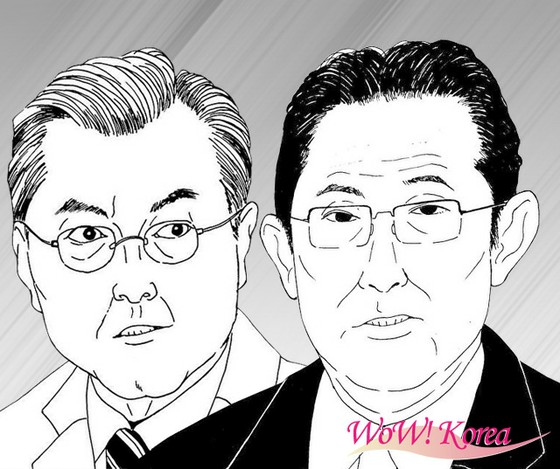 |
The two restaurants that received the highest rating of three stars were Kaon and The Shilla Seoul's Rayong (both are Korean restaurants). Both stores have received a three-star rating for the sixth consecutive year since the publication of "Michelin Guide Seoul" began in 2016 (2017 edition).
South Korea tends to be particularly conscious of Japan in its ratings and rankings, but some Korean media pointed out that the number of sushi restaurants has increased in the "Michelin Guide Seoul 2022".
Hankook Ilbo said, "This year's Michelin Guide's rising star was Japanese food represented by sushi."
In addition, the Chosun Ilbo published an article under the headline "Is this Seoul or Tokyo..., Michelin is 'sushi'?", Which caused little dissatisfied. The newspaper said, "Five restaurants that serve Japanese cuisine, such as three sushi restaurants, have newly entered the guidebook." "Of the 33 restaurants with stars, eight are Japanese restaurants." Until two years ago, the number of Japanese restaurants listed in the "Michelin Guide Seoul" was one, but it increased to three last year and eight this year. On the other hand, the number of restaurants classified as "Korean food" was also eight.
It is said that Michelin judges never reveal their identity and judge under strict screening standards, but the newspaper said, "The sudden increase in the number of Japanese restaurants is because young people are crazy about sushi. Although it is popular, there is also a view that it is because the Michelin Guide sponsorship contract of the Korea Tourism Organization ended last year. "
"There are talks about the fact that the sponsorship contract has expired and the Michelin Guide, which was favorable to Korean restaurants, has stopped giving 'additional points' to Korean food" said a person in the food service industry.
In 2016, when the publication of "Michelin Guide Seoul" began, the vice president of the Michelin Group (Michelin Guide Division, Asia-Pacific General Manager) said, "The publication of the Seoul edition reflects the rise in the level of gastronomy in South Korea. I hope that the various food cultures of Korea will be widely introduced to the whole world through the Michelin Guide."
However, from that time on, Korean media and others were so conscious of Japan that there was an atmosphere of concern about the publication of guides. In March of the same year, an editorial writer of JoongAng Ilbo wrote in a column, "The place with the most stars is Tokyo. Last year (2015), there were 226 stores, compared to Paris (94 stores) and New York (73 stores). If there are fewer restaurants with stars in Seoul than in Tokyo, what would be the reputation of Korean food?"
On the other hand, there are media that positively report that "Michelin's choice was Korean food" (The Hankyoreh newspaper) about this "Michelin Guide Seoul". All of the top three-star restaurants were Korean restaurants, and five of the seven two-star restaurants were based on or based on Korean cuisine.
There are many ways to take it, but at the same time as being a global tire company, the Korean food industry, which has the national policy of "K Food" globalization, is grateful for the strict and calm examination of Michelin, a global food and beverage guide.
South Korea has achieved high-speed development by narrowing down its goals and imitating Japan by comparing it with Japan, which has a similar environment, in all areas of society. Korean popular music, TV series and movies, which have been successful worldwide, are no exception, as well as industry, infrastructure and social systems.
Now is the time to calmly analyze why "K-Quarantine" failed and why "K-POP" succeeded. By comparing "K-food" with Japanese food, we should learn a lot from Japan in order to get inspiration and inspiration and become world-class like "K-POP".
We should learn from the pioneers and pioneers who showed the essence of sushi culture to South Korea like Seoul's "Sushi Matsumoto" while thanking Japan nearby, and make "K Food" more competitive.
This is not the case when making excuses such as "sponsor contract" or "additional points". Do not try to move the evaluation "goal post" for that reason.
2021/12/08 21:11 KST


![Ji Chang Wook, the sculptural visual of a Korean male god... soft masculine beauty [photography]](/img/topic/23/116339/248247_640W.webp)